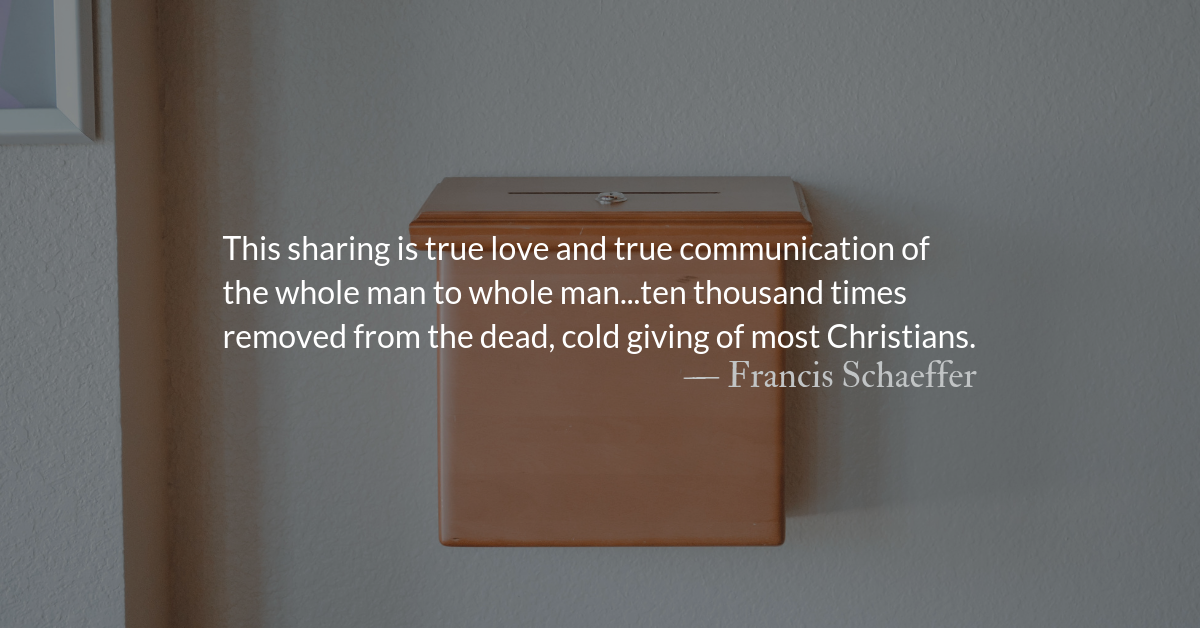Scripture Focus: Acts 4.7-12
7 They had Peter and John brought before them and began to question them: “By what power or what name did you do this?”
8 Then Peter, filled with the Holy Spirit, said to them: “Rulers and elders of the people! 9 If we are being called to account today for an act of kindness shown to a man who was lame and are being asked how he was healed, 10 then know this, you and all the people of Israel: It is by the name of Jesus Christ of Nazareth, whom you crucified but whom God raised from the dead, that this man stands before you healed. 11 Jesus is
“ ‘the stone you builders rejected,
which has become the cornerstone.’
12 Salvation is found in no one else, for there is no other name under heaven given to mankind by which we must be saved.”
Reflection: In Trouble for Good
By John Tillman
In Acts, Luke writes nearly as often about apostles in a jailhouse as he does about apostles in a churchhouse. (Or a house church.)
New Testament church leaders always found trouble. Beginning with Peter and John and continuing through Stephen, Paul, and others, they were harassed, chased out of towns, arrested, thrown in jail, stoned to death or executed in other ways. (Matthew 10.17-18) Later, Peter and other apostles would rejoice that they had suffered for the name of Jesus. (Acts 5.40-41)
There are still Christians today who rejoice in being persecuted. But are they suffering for the name of Jesus or for something else? Are they suffering for healing, like Peter and John, or for harming?
Peter told the church that we should suffer for doing good, not evil. (1 Peter 3.17) When Jesus said we would be hated, it wasn’t for being hateful. (Luke 6.22) Whether through words or actions, we should be doing good to our enemies, not scoring points with insults.
It insults truly persecuted Christians when those who are suffering the consequences of being cruel claim to be suffering for Christ. Yet, we cannot, for the sake of being loved by the world stay silent about the gospel.
Therefore, simply being “in trouble” doesn’t prove we are following Jesus. However, if we consistently follow Jesus, we will be in trouble for good—in trouble for doing good things and in trouble continually.
Have you been called a “troublemaker?” (1 Kings 18.17-18) Have you been in trouble for doing good? For correcting a bad representation of Jesus? For loving the unlovable? For forgiving the unforgivable? For sharing the gospel?
Our world pressures us to have silent faith—individual and private—which does nothing that can be seen and says nothing that can be heard. But Jesus models a public faith that does good, speaks the truth, and demonstrates the loving heart of God.
What does it take to boldly love and act despite the trouble that may come?
Jesus modeled an inward life of devotion that led to an outward life of service and speech. It is what we cultivate in our inner spiritual lives that must come out in our actions. Without this inner spiritual formation, we are more likely to swing swords, like Peter in the garden, than heal the lame, like Peter at the Temple. (John 18.10-11; Acts 3.6-8)
Let’s put down our swords and take up prayer, healing, and the gospel.
Divine Hours Prayer: A Reading
So they reached Jerusalem and he went into the Temple and began driving out the men selling and buying there; he upset the tables of the money changers and the seats of the dove sellers. Nor would he allow anyone to carry anything through the Temple. And he taught them and said, “Does not scripture say: ‘My house will be called a house of prayer for all peoples?’ But you have turned it into ‘a bandits’ den.’ This came to the ears of the chief priests and the scribes, and they tried to find some way of doing away with him; they were afraid of him because the people were carried away by his teaching. And when evening came he went out of the city. — Mark 11.15-19
– From The Divine Hours: Prayers for Springtime by Phyllis Tickle.
Today’s Reading
Leviticus 7 (Listen 5:13)
Acts 4 (Listen 5:15)
Read more about Judas, Peter, and Satan
As we practice the presence of God, we are arming ourselves for the presence of evil.
Read more about The Sword Versus The Cross
We have been sifted, tricked, by Satan. The only way back is to repent and take up the cross instead of the sword.










